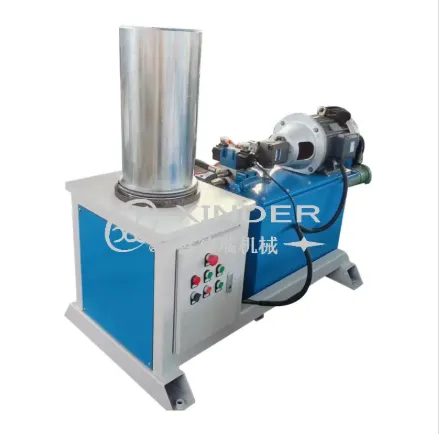-
 8613931787312
8613931787312 -
 Botou Industrial Zone on the east side of National Highway 104, Botou City, Hebei Province
Botou Industrial Zone on the east side of National Highway 104, Botou City, Hebei Province
- Afrikaans
- Albanian
- Amharic
- Arabic
- Armenian
- Azerbaijani
- Basque
- Belarusian
- Bengali
- Bosnian
- Bulgarian
- Catalan
- Cebuano
- Corsican
- Croatian
- Czech
- Danish
- Dutch
- English
- Esperanto
- Estonian
- Finnish
- French
- Frisian
- Galician
- Georgian
- German
- Greek
- Gujarati
- haitian_creole
- hausa
- hawaiian
- Hebrew
- Hindi
- Miao
- Hungarian
- Icelandic
- igbo
- Indonesian
- irish
- Italian
- Japanese
- Javanese
- Kannada
- kazakh
- Khmer
- Rwandese
- Korean
- Kurdish
- Kyrgyz
- Lao
- Latin
- Latvian
- Lithuanian
- Luxembourgish
- Macedonian
- Malgashi
- Malay
- Malayalam
- Maltese
- Maori
- Marathi
- Mongolian
- Myanmar
- Nepali
- Norwegian
- Norwegian
- Occitan
- Pashto
- Persian
- Polish
- Portuguese
- Punjabi
- Romanian
- Russian
- Samoan
- scottish-gaelic
- Serbian
- Sesotho
- Shona
- Sindhi
- Sinhala
- Slovak
- Slovenian
- Somali
- Spanish
- Sundanese
- Swahili
- Swedish
- Tagalog
- Tajik
- Tamil
- Tatar
- Telugu
- Thai
- Turkish
- Turkmen
- Ukrainian
- Urdu
- Uighur
- Uzbek
- Vietnamese
- Welsh
- Bantu
- Yiddish
- Yoruba
- Zulu
Hydraulic Expansion Machines: Enhancing Tube Fitting and Performance
Hydraulic expansion machines are essential tools in various industries, particularly in applications where tube fittings and connections need to be securely expanded or reshaped. These machines use controlled hydraulic force to expand the ends of tubes, providing a precise and reliable method for creating strong, leak-proof connections. In this article, we explore the function of hydraulic tube expansion machines, the advantages of mechanical expanders, and the role of these technologies in modern manufacturing.

What is a Hydraulic Tube Expansion Machine?
A hydraulic tube expansion machine is a specialized tool used to expand the ends of tubes to a specific size, typically to fit into flanges, heat exchangers, or other components that require a secure connection. The machine works by applying hydraulic pressure through a series of mandrels and dies, which gradually expand the tube to the desired diameter without causing distortion. This process ensures a tight, leak-free seal and is essential in industries such as power generation, chemical processing, and HVAC (heating, ventilation, and air conditioning).
Hydraulic tube expansion offers several benefits over traditional methods, including improved accuracy, uniformity, and the ability to handle larger tube sizes and thicker materials. The hydraulic method also allows for more controlled expansion, reducing the risk of damaging the tube or component.
Mechanical Expander: A Reliable Alternative
While hydraulic expansion machines are widely used, mechanical expanders also play a vital role in tube expansion processes. A mechanical expander is a manually operated tool that uses a series of tapered rollers or plugs to expand the tube's ends. Unlike hydraulic machines, which rely on fluid pressure, mechanical expanders apply direct force to expand the tube, typically through a twisting or turning motion.
Mechanical expanders are particularly useful in applications where a more manual, low-cost solution is required. They offer ease of use and portability and are suitable for smaller-scale operations or maintenance tasks. However, they may not be as efficient or precise as hydraulic machines, especially for larger or more complex tube configurations.
Applications and Industries
Both hydraulic and mechanical expanders are used in a wide range of industries. In heat exchangers, for example, hydraulic tube expansion ensures that the tubes are securely connected to the tube sheets, preventing leaks and improving heat transfer efficiency. Similarly, in the petrochemical and oil and gas industries, hydraulic expansion machines are crucial for ensuring tight, durable tube connections in complex systems.
These machines are also widely used in HVAC systems for the installation of condenser and evaporator tubes, where consistent and reliable expansion is essential for performance and safety.
In conclusion, hydraulic tube expansion machines and mechanical expanders are indispensable tools in industries that rely on secure, high-performance tube fittings. While hydraulic machines offer high precision and efficiency for large-scale operations, mechanical expanders provide a reliable, cost-effective solution for smaller or less complex tasks. Both types of machines contribute to the durability and functionality of systems that depend on precise tube connections.
-
Understanding Automatic Seam Welding Machines: A Game Changer in Welding TechnologyNewsJul.18,2025
-
Revolutionizing Packaging: The Role of Welding Machines in Steel and Tin Can ManufacturingNewsJul.18,2025
-
Precision in Motion: Exploring Seam Welding Machines for Industrial FabricationNewsJul.18,2025
-
Mastering Precision Bending: A Guide to Tube Benders and Their TypesNewsJul.18,2025
-
Inside the World of Barrel Manufacturing: Machines, Lines, and CostsNewsJul.18,2025
-
Exploring the Technology Behind Elbow Bending Machines in Pipe ManufacturingNewsJul.18,2025
-
Unlocking the Power of Light: Exploring Modern Laser Welding SolutionsNewsJul.15,2025
-
 Pneumatic Handle Welding MachineSep . 13, 2024
Pneumatic Handle Welding MachineSep . 13, 2024 -
 Fully Automatic Kaiping Production LineOct . 17, 2024
Fully Automatic Kaiping Production LineOct . 17, 2024 -
 Fully Automatic Metal Bucket Lifting HeadphonesSep . 14, 2024
Fully Automatic Metal Bucket Lifting HeadphonesSep . 14, 2024

